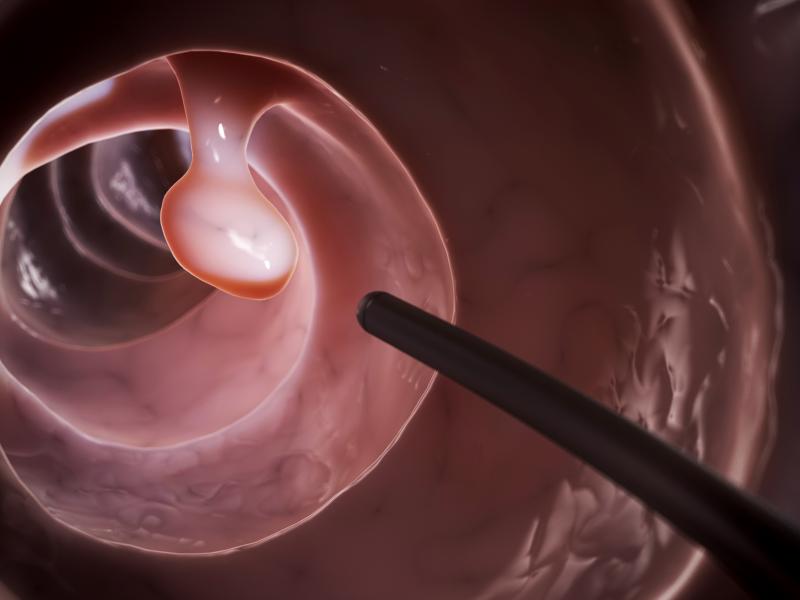
Adherence to a healthy lifestyle confers a protective benefit against colorectal polyps, particularly serrated and distal polyps, according to a study. No dose–response association is found.
In addition, healthy lifestyle components that have the strongest association with a lower risk of colorectal polyps are abstinence from smoking and maintaining a healthy diet.
This case–control study included consecutive patients aged 40–70 years undergoing colonoscopy. Those with colorectal polyps were compared with controls. The authors gathered detailed information on polyp histology and anatomic location, demographics, medical history, anthropometrics, and lifestyle. They estimated the healthy lifestyle index as the sum of nonsmoking, healthy diet, physical activity and maintaining a healthy weight.
A total of 403 patients and 385 controls were included in the study. An inverse association was found between the healthy lifestyle index and colorectal polyps (odds ratio [OR], 0.72, 95 percent confidence interval [CI], 0.62–0.85; p<0.001), both adenomas (OR, 0.75, 95 percent CI, 0.64–0.89) and serrated polyps (OR, 0.59, 95 percent CI, 0.44–0.79), as well as proximal (OR, 0.77, 95 percent CI, 0.62–0.95) and distal adenomas (OR, 0.73, 95 percent CI, 0.59–0.90).
Adherence to two or more healthy lifestyle components strongly correlated with a reduced risk of colorectal polyps (OR, 0.50, 95 percent CI, 0.34–0.75; p=0.001), with the most robust factors being abstinence from smoking (OR, 0.58, 95 percent CI, 0.42–0.79) and a healthy diet (OR, 0.61, 95 percent CI, 0.44–0.85).
“Lifestyle-related characteristics may assist in risk stratification and are potential goals for colorectal neoplasia prevention,” the authors said.